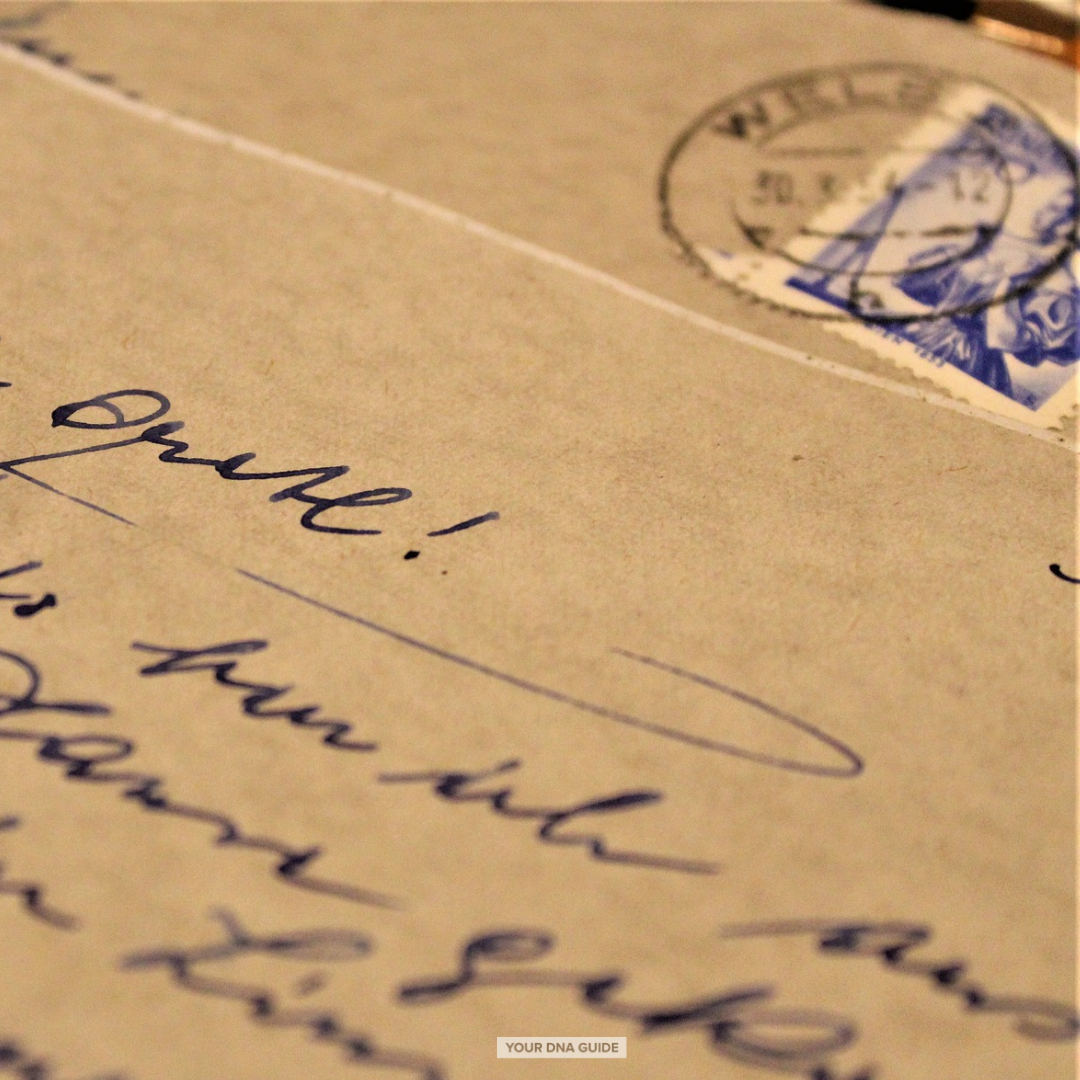Getting DNA from postage stamps, hair samples and other items is now sometimes possible. Here’s what you’ll want to know about this for your own genetic genealogy mysteries.
 A few years ago, I blogged about DNA to be extracted from hair samples purportedly belonging to the crew of the HMS Bounty. Though this was a cool historical exploration, I warned genealogists not to get too excited about shipping off hair samples found in grandma’s hairbrush, since cost and technology didn’t make this a reasonable option for most situations.
A few years ago, I blogged about DNA to be extracted from hair samples purportedly belonging to the crew of the HMS Bounty. Though this was a cool historical exploration, I warned genealogists not to get too excited about shipping off hair samples found in grandma’s hairbrush, since cost and technology didn’t make this a reasonable option for most situations.
Well, you’re now allowed to get a little more excited.
DNA “special samples:” Stamps, hair, etc.
DNA profiles can now sometimes be extracted from a licked stamp, used razor or hair with the root attached (not just cut hair) and even other items. These kinds of genetic samples are known as “special samples” because they require additional processing to acquire a viable profile—more processing than is typically performed on saliva or cheek swabs by the Big 5 genetic genealogy testers (23andMe, AncestryDNA, FamilyTreeDNA, LivingDNA, and MyHeritage DNA).
Last year, Living DNA helped a woman in a high-profile case identify her birth father (after extensive genealogical research narrowed the search) from DNA taken from a postage stamp. This service isn’t yet advertised on Living DNA’s website, but they are willing to provide it.
Companies outside the mainstream genetic genealogy world do process special samples. An Australian company called To the Letter DNA claims to be “first company in the world to offer commercially-available testing of envelopes, postcards with stamp/s, aerogrammes and other artefacts from deceased relatives for genealogical purposes.” Prices start at $310 AUD. The DNA Testing Centre, Inc. in Lansing, Michigan, USA, advertises DNA processing from bloodstains, fingernail clippings, hair samples, cigarette butts and more. Their prices start at $240 USD. I have not used either company’s services myself.
The fine print
The real drawback of using special samples is that once you have the profile, you are only able to query the databases at FTDNA and MyHeritage, as they are the only companies that allow you to upload samples. And because DNA in special samples is of variable quality, there’s no guarantee that your samples will produce a usable DNA profile for genealogy. But the technology continues to improve. Things are definitely looking brighter on this front than they were even a couple of years ago.
Here’s one thing to watch for in the future: It’s actually easier to pull mitochondrial DNA (mtDNA) from special samples. (This is only helpful if you’re doing maternal line research.) The only company currently offering a comparison database for mtDNA is FamilyTreeDNA, and they’re not processing or accepting special samples, so this information doesn’t help you now. But things can and DO change in the DNA testing world. So just file that piece of information away for now.
Sometimes you can achieve your goal another way – perhaps by testing multiple living people with the same amount of money. Just something to think about.
Get help with your DNA questions!
Learn more about what DNA can tell you about your birth roots with our free download, Birth Roots and DNA. These simple tips will teach you how to move forward while you search for your family members and ancestors.

